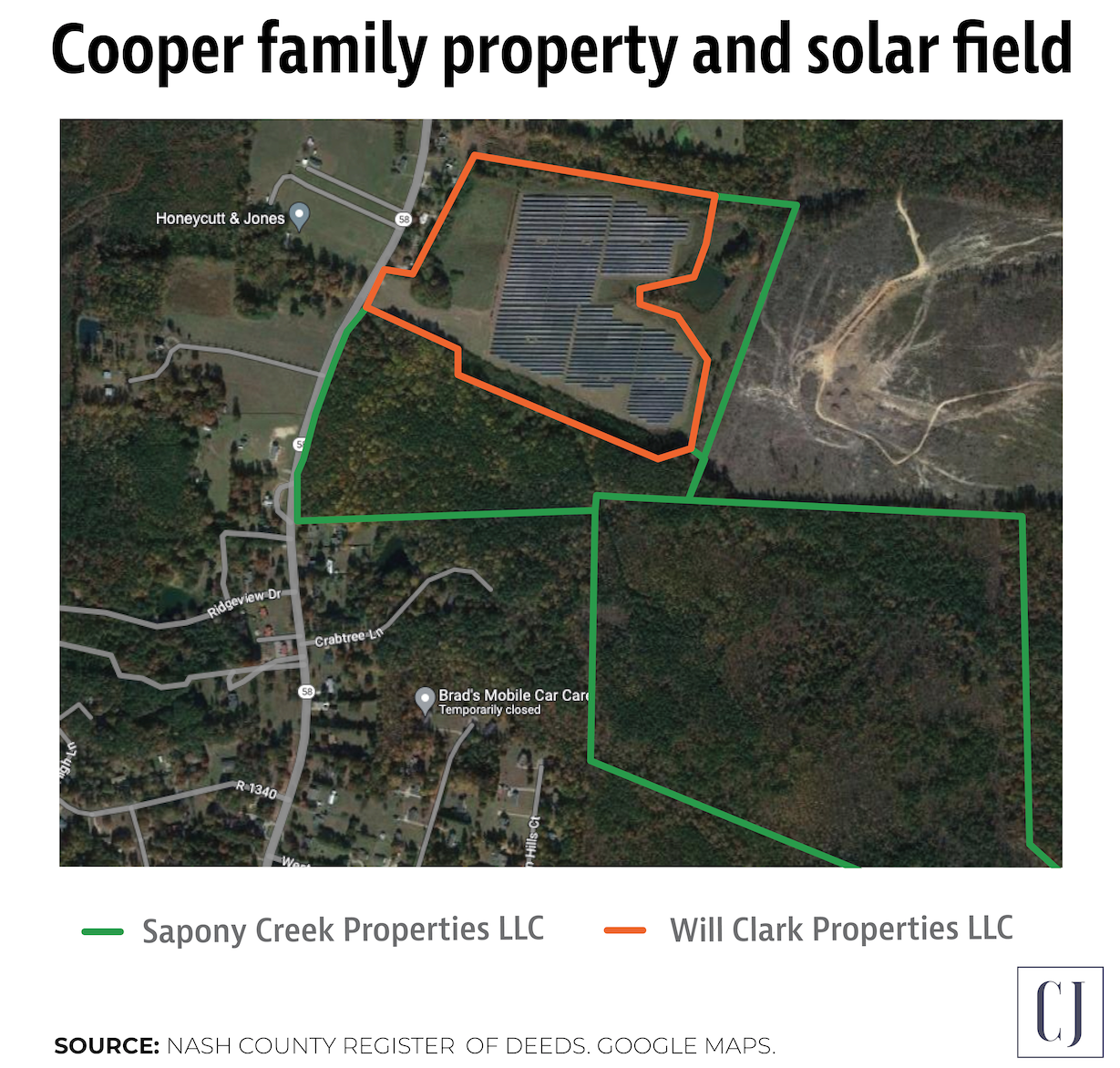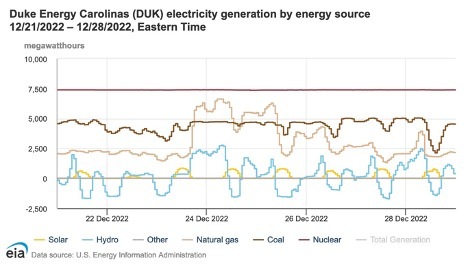In the most recent of Carolina Journal’s Follow the Money print series, “Cooper’s Green Agenda’” Carolina Journal tracks donations from green energy groups to the campaigns of Gov. Roy Cooper and highlights his executive orders and other actions setting green energy policy as governor.
Cooper’s staff communications director fired back on Twitter calling out what he characterized as a “brazen lie” in our February print edition story which stated that “he (Cooper) and his brother own land in Nash County with an estimated $1 million annual lease to Chapel Hill-based Strata Solar,” to which Carolina Journal issues a correction; Gov. Roy Cooper no longer appears to gain directly or personally from the solar farm on land which he purchased with his brother in 1996. While Cooper does not directly benefit, his family does.
The background
Roy Cooper is not currently listed as the manager of the Will Clark Properties LLC, the organization that owns the land he bought where there is a 20-year lease for a solar field; his sister-in-law, Meredith Cooper, is.
According to filings with the N.C. Secretary of State, Meredith Cooper is currently the manager of Will Clark Properties LLC, which owns the land, and has been since 2019.
In 2013, Strata Solar Development created a separate LLC, Nash 58 Farm, to lease the property and their original filing with the N.C. Utilities Commission cites Roy A. Cooper III as the owner of the property. Later in 2013, his brother, Judge Pell Cooper was the only signer on a lease extension of a 20-year agreement. The lease is listed as expiring in 2034.
Gov. Cooper WAS listed as an owner of Will Clark Properties LLC, along with Pell Cooper, from 2012 to 2014, and the filings changed to Pell alone from 2015 to 2018.
In annual filings dated as recently February 06, 2023 with the N.C. Secretary of State, Roy Cooper is instead the manager of the Sapony Creek Properties LLC., listing the address of the N.C. Executive Mansion. Sapony Creek Properties LLC owns three parcels of property surrounding that solar field, on which there appear to be no solar panels.

It’s been reported over the years that then-N.C. Attorney General Roy Cooper and his brother bought the Nash County land from their father in 1996 and in 2012 formed Will Clark Properties LLC to manage the property. Cooper’s communications officer has deflected the question before when other news outlets asked about the role of these leases in negotiations over solar farm regulations.
In 2014, Roy Cooper left the Will Clark Properties LLC, but did not publicly report an income from that separation. He and his brother divided the land and formed Sapony Creek Properties LLC.
Both brothers were on the initial LLC paperwork for Sapony Creek Properties in 2014. Starting in 2019, Roy Cooper began being listed as the sole manager of Sapony Creek Properties, LLC and Meredith Cooper as the manager of the Will Clark Properties LLC.
In his statements of economic interest, Gov. Cooper listed Sapony Creek Properties LLC as a “rental income;” the LLC owns several properties around the Nash County area.
Here are some additional facts that create confusion about the governor’s role with the solar farm and surrounding property. While Roy Cooper is listed as manager of the property around the solar farm, the “principal office address” is listed as brother Pell Cooper’s home. While the two distinct LLCs for the solar farm and surrounding properties have different mailing addresses, they have the same registered agent, an attorney with a law firm started by Roy and Pell Cooper’s father.
Twitter tirade highlighted the key question
More alarming in the Twitter tirade from Cooper’s taxpayer-paid staff member is the regurgitation of talking points from green energy groups. He alludes to comments offered by advocates like Simon Mahan, executive director of Southern Renewable Energy Association, and tweeted that fossil fuels failed in the state’s December 2022 blackouts. But the reality is much worse; the coal and gas sources themselves didn’t fail, the equipment and the system failed. According to Duke Energy, solar produced very little during the outages. As the state works toward building an energy future that is cleaner, more reliable, and affordable, North Carolinians deserve to know that elected leaders, and their staff members, are looking at this critical issue with cool heads and clear eyes.

As the original article points out, a large percentage of Cooper’s campaign funds over the years have come from green energy groups that endorse solar and wind as the primary energy source of the future. December’s rolling blackouts gave state leaders a rare opportunity to inventory what worked and what didn’t and show that a future build around solar and wind energy would likely need expensive redundancies that our current grid cannot support, and may not be in line with the HB951 law.
Is executive policy on North Carolina’s energy future too closely shaped by green energy groups? That is for voters to decide, but getting information out for discussion is part of our mission.
As with politicians and their finances, North Carolina’s energy future is complicated. All stakeholders should be working together to build a reliable grid with affordable energy as its primary goal. We hope that Cooper’s entire staff feels the same.
Certainly, we are willing to dig into the records, and appreciate the opportunity to add context and corrections, and appreciate the governor’s office bringing the discrepancy to our attention. As they are aware, the paper trail is not easy. A phone call or email with any further transparency is welcome.